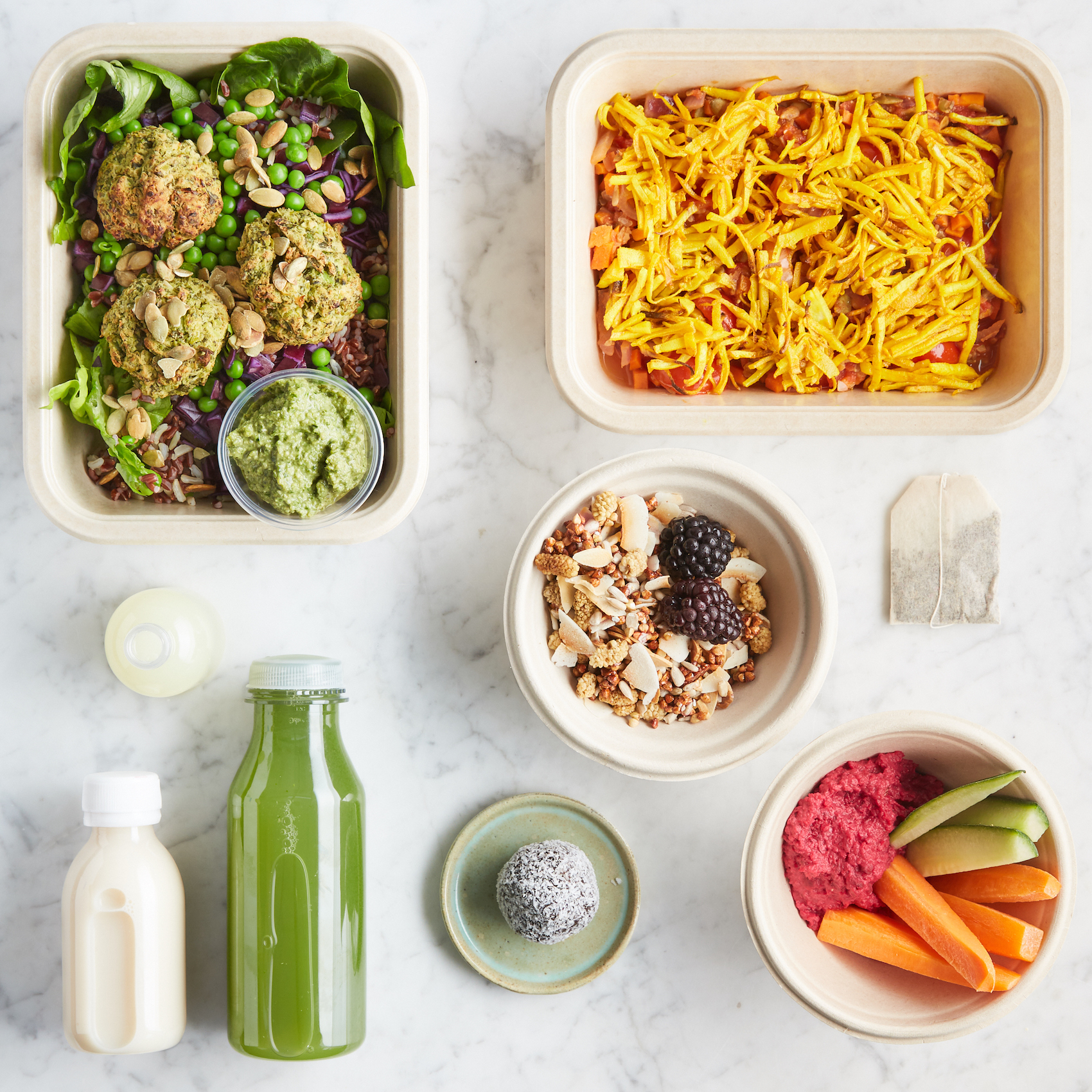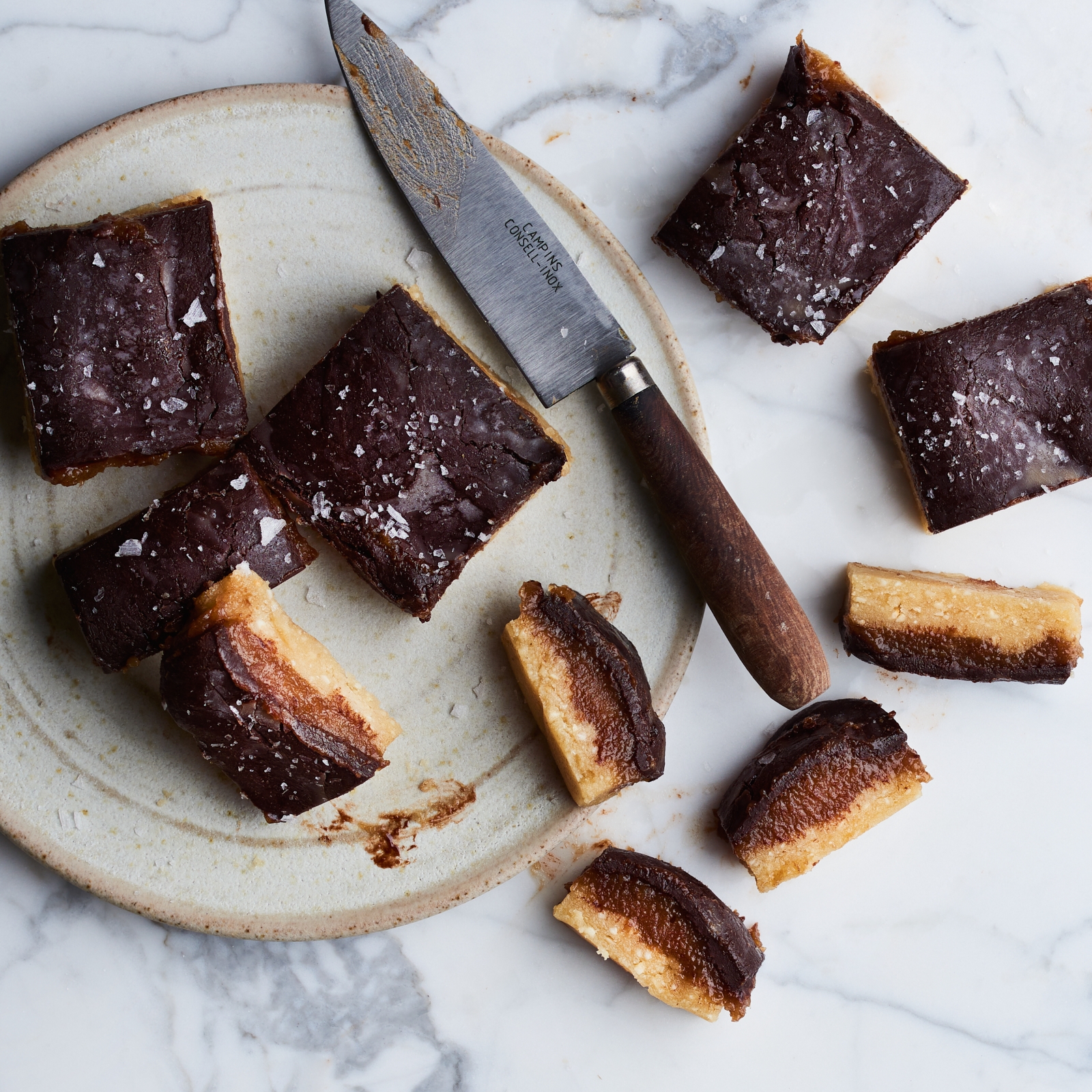17 Mar, 2023
How to reset your gut health
The efficiency of your gut is bedrock to good health and research has begun to show that this may go way beyond digestion. In this article, Nutritionist Rob Hobson reveals his top tips to reset your gut. Whilst many of these tips may seem simple, the fact is that many people are still not doing what it takes to keep their gut healthy. Try them all for a complete gut heath reset.
HealthThe efficiency of your gut is bedrock to good health and research has begun to show that this may go way beyond digestion.
Like a sorting office, your gut is responsible for breaking down food, absorbing nutrients for delivery around the body and then managing waste. In a perfect world this should be a flawless operation, but the reality is that many people experience the side effects of poor digestion which include bloating, excess wind and constipation. Diet and lifestyle also have a role to play in many gut conditions including IBS.
The microbiome
The term ‘microbiome’ refers to an ecosystem of microorganisms that live in and around the body, most of which reside in your gut. These microbes act as a protective barrier against foreign invaders with the potential to harm our health. We all have a unique microbiome comparable to our fingerprint which is defined by the environment both within and around us.
The bacteria found in our gut are essential for efficient digestion and also help to digest antioxidant polyphenols (shown to help reduce the risk of disease) and synthesise vitamins such as B12, D, folic acid and thiamine.
New and evolving research has also begun suggesting that the diversity of bacteria in your gut may even influence mental health and play a role in obesity by way of the gut-brain axis.
Why gut health is the key to better health
The purpose of good gut health and optimal digestion is to turn the food you eat into fuel for your body’s cells. Many people have poor digestion and what happens when we are not efficiently turning the food we eat into fuel? We feel horrible! Fatigued, foggy, bloated, experience flatulence, possible nutritional deficiencies, constipation, diarrhea, reflux, weight gain, brittle nails, dry skin, an inability to lose weight, cravings, low immune function and hormonal imbalances. The list goes on!
Our gut does so much more than just break down food. It’s really important to remember that a healthy gut needs a good balance of healthy bacteria. Your gut holds trillions of bacteria that help process your food, produce nutrients, and fight disease. When the gut is happy, we flourish. Eating and drinking nutrient rich foods, supports this healthy bacteria like no other.
How do I know if I’m living with poor gut health?
Digestive system issues such as gas, bloating, diarrhea or irritable bowel syndrome (IBS).
Seasonal allergies or asthma.
- Ongoing hormonal imbalances such as PMS or PCOS.
- Diagnosis of an autoimmune disease such as rheumatoid arthritis, Hashimoto’s thyroiditis, lupus, psoriasis, or celiac disease.
- Diagnosis of chronic fatigue or fibromyalgia.
- Mood and mind issues such as depression, anxiety, ADD or ADHD.
- Skin issues such as acne, rosacea, or eczema.
- Diagnosis of candida overgrowth.
- Food allergies, food sensitivities or food intolerances.
- Poor immune system.
- Arthritis or joint pain.
- The gut health protocol.
If you are suffering from gut issues you are likely to be absorbing insufficient essential nutrients from your food, which your body needs for good health. If the gut is not healed, then long term implications for your health can be very serious. Here are some of my go to’s and some of the big no no’s, also some useful tips that may help you on your journey to healing and caring for your gut.
1. Try to avoid these foods
- Avoid gluten found in wheat, rye, spelt, oats and barley, as it hugely contributes to a leaky gut and triggers bloating. Eating gluten and wheat-free foods should make a big difference.- Refined sugars encourage fermentation and growth of unfriendly bacteria in the bowel, so keep refined sugary foods and drinks to an absolute minimum.
- If you tend to bloat a lot after meals, avoid eating fruit directly after a large protein meal, as fruit likes a quick passage through the gut. If it gets stuck behind proteins, such as meat, the fruit will ferment, which adds to the problem. Alcohol, vinegar and most pickled foods contribute to fermentation.
- Any foods to which you have intolerance will only aggravate the problem; the most common being wheat, citrus fruits and also cow’s milk and products. Chocolate I’m afraid should be avoided.
- Melon is particularly bad for a leaky gut – this should only ever be eaten on its own.
Generally fruits such as apple, grapes, bananas, pears can cause bloating after a meal keep these fruits to an empty stomach only. Keep a food diary and note when symptoms are worse if you need a little guidance.
- Avoid heavy, fatty, large meals, which place strain on the digestive system and the liver.
Cut down on low fibre foods such as sugary jellies, ice cream, burgers, biscuits, cakes, pies, pastries and so on.
2. Make best friends with these gut-friendly foods
- Pineapple is rich in enzymes, which improve protein digestion, making it less likely that undigested proteins end up in the bowel. Eat before or in between meals not directly after (for desert).
- Mango, papaya, pomegranate and berries do not tend to ferment as readily as most other fruits. Eat between meals.
- Try almond, rice, quinoa or coconut milk as non-dairy alternatives.
- Beetroots, Jerusalem artichokes, peas, radishes, celeriac and dandelion are all good liver cleansers, which help digestion. Beans, pulses, lentils are all good gut food. They contain inulin, which helps encourage the growth of bifidus within the large bowel. This helps to reduce the load on the liver.
- Raw sunflower, pumpkin and sesame seeds, flaxseeds, plus nuts are all rich in fibre.
Drink plenty of water.
- Organic source chlorella is a great way to detoxify the system. Stir in smoothies or juice, or sprinkle over cereals and fruit salads.
- Use fresh root ginger in your cooking, which soothes and heals the gut.
- Green cabbage is rich in the amino acid L-glutamine, which helps heal a leaky gut. Eat more raw or steamed cabbage and use the liquid from cooking to make sauces.
- Eat plenty of fresh vegetables; and if you eat fruit, eat it between meals or for breakfast.
- Try quinoa, buckwheat, millet and brown rice.
- Drink more organic green and white teas, high in anti-oxidants.
3. Fibre, fibre, fibre.
Foods high in fibre include wholegrains, pulses, beans, lentils, vegetables, nuts, seeds and dried fruit. This nutrient influences the transit of food through the digestive tract and has also been shown to reduce the risk of heart disease, type 2 diabetes and bowel cancer. However, according to findings from the National Diet and Nutrition Survey it appears that most of us do not get enough fibre in our diet as only 10% of adults eat the recommended 30g per day.
4. Pro and prebiotics
Probiotics are bacteria shown to have a beneficial effect supporting a healthy microbiome. Recognised strains include Lactobacillus and Bifidobacterium and can be found in live yoghurt and probiotic shot drinks. Fermented foods such as kefir, kimchi and sauerkraut are also beneficial for gut health and contain many different strains of bacteria. You may also want to take a probiotic supplement. Choose one that contains recognised strains and a dose of at least 10 billion bacteria per capsule.
Prebiotics are types of fibre that cannot be digested and help to cultivate a healthy microbiome by helping gut bacteria to flourish. Gut bacteria break these fibres down by fermentation to produce short chain fatty acids that supply energy to the cells that line your colon. Foods rich in prebiotics include onions, garlic, leeks, asparagus, bananas, oats and barley. Starchy foods such as pasta, rice and potatoes, which have been cooked and left to cool form resistant starches that also act as prebiotics in the gut.
5. Eat mindfully and manage your stress
Pay attention to the way you eat as this can seriously impact on your digestive system. Adopt mindful eating techniques like chewing your food slowly, sitting down to eat and putting your knife and fork down between mouthfuls. Serve smaller portions of food in a single sitting and avoid eating too close to bedtime as this can encourage reflux and heartburn. Make sure you also eat regularly as skipping meals or going long periods without eating can encourage bloating. Learn to manage your stress as this can affect movement and contraction of the GI tract and is also considered to be a risk factor for Irritable Bowel Syndrome.
Discover our NEW 10-Day Gut Reset, with 10 days of delicious, gut-friendly and anti-inflammatory food and drinks and a bundle of supporting gifts to nurture your gut health and feed your microbiome. Find out more here.
Otherwise, our meal plans are packed with fibre and gut-friendly foods, making them an easy way to reset the gut. They also happen to be pretty tasty too! Browse our meal plans now.

Rob Hobson is a registered nutritionist (BSc, MSc, AFN), published author and food writer. Rob has 15 years of experience working with some of the UK’s leading food companies, government agencies, NHS and private clients as well as regularly writing in the media for publications including the Daily Mail online.



